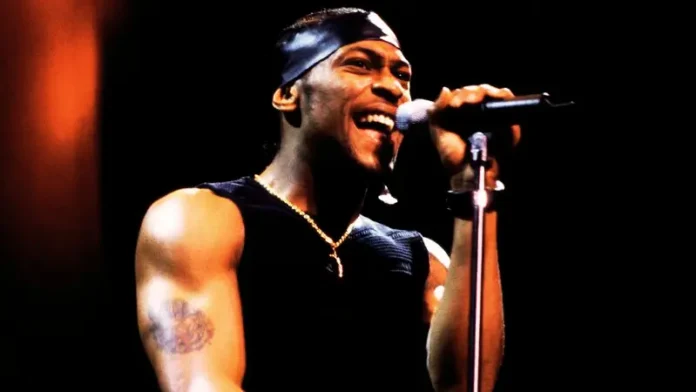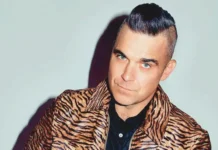Music World Mourns the Loss of D’Angelo
The global music community is in mourning following the heartbreaking death of Grammy Award-winning R&B and soul artist D’Angelo, who passed away at the age of 51.
The artist, whose real name was Michael Eugene Archer, had been battling cancer for several years before his family confirmed his passing on October 14, 2025.
In a heartfelt statement, the family shared:
“Our family’s shining star has dimmed in this world. After a long and courageous fight with cancer, our beloved Michael D’Angelo Archer has left us. We invite everyone to celebrate his gift of music and the light he brought to the world.”
The announcement immediately sparked an outpouring of tributes from fans, musicians, and fellow artists across social media, honoring a man who redefined soul for a new generation.
The Rise of a Neo-Soul Pioneer
D’Angelo began his career as a songwriter and instrumentalist, collaborating with iconic artists like Lauryn Hill and The Roots before stepping into the spotlight himself.
His 1995 debut album, “Brown Sugar,” became an instant classic, blending R&B, funk, and jazz in a way that felt timeless yet revolutionary. The single “Lady” climbed to the Top 10 on the Billboard Hot 100, earning him widespread acclaim and several Grammy nominations.
His sound—marked by smoky vocals, intricate arrangements, and soulful grooves—helped launch what would later be known as the neo-soul movement, paving the way for artists like Erykah Badu, Maxwell, and Alicia Keys.
“Voodoo” and the Height of His Fame
In 2000, D’Angelo released his highly anticipated second album, “Voodoo,” a record that solidified his place among the greatest R&B artists of all time.
The album debuted at No. 1 on the U.S. charts and earned two Grammy Awards, including Best R&B Album and Best Male R&B Vocal Performance for the now-legendary single “Untitled (How Does It Feel).”
The sultry, minimalist video for “Untitled” caused both controversy and fascination, cementing D’Angelo’s reputation as an enigmatic and boundary-pushing artist. Yet, the sudden fame and intense scrutiny took a toll on him personally.
Struggles, Silence, and a Triumphant Return
Following his meteoric success, D’Angelo faced personal struggles that led to a long hiatus from the spotlight. Issues with alcohol dependency and a serious car accident in 2005 forced him to step away from music for nearly a decade.
In 2014, he made a triumphant return with “Black Messiah,” an album inspired by social unrest and racial justice movements in the U.S. The record was hailed as both a cultural statement and a musical masterpiece, earning him another Grammy Award for Best R&B Album in 2016.
Critics called it “a fearless comeback, full of anger, spirit, and redemption.”
A Legacy Etched in Music History
Throughout his career, D’Angelo released only three studio albums, yet his influence on R&B, funk, and soul is immeasurable.
He bridged the gap between generations, blending the raw emotion of Marvin Gaye, the groove of Prince, and the poetic lyricism of Stevie Wonder—while creating something unmistakably his own.
According to Rolling Stone, his album “Voodoo” was ranked No. 28 on the magazine’s “Greatest Albums of All Time” list in 2020, a testament to his enduring artistic power.
Before his passing, D’Angelo was reportedly working on a new project with Raphael Saadiq, sparking hope among fans for a long-awaited fourth studio album.
The Enduring Power of D’Angelo’s Music
D’Angelo’s artistry wasn’t just about melodies—it was about truth, vulnerability, and soul.
His music spoke to the complexities of love, race, spirituality, and identity, making him one of the few modern artists to truly capture the spirit of classic soul while reinventing it for the 21st century.
As news of his death spread, tributes poured in from artists like Questlove, Erykah Badu, and Anderson .Paak, all citing him as one of their biggest influences.
“D’Angelo didn’t just make music,” Questlove wrote on Instagram, “he made time stand still every time he sang.”
Remembering the Man Behind the Music
Born on February 11, 1974, in Richmond, Virginia, D’Angelo discovered music in church, where his father served as a Pentecostal minister.
By his teens, he was performing at the Apollo Theater, winning amateur nights three weeks in a row—a clear sign of the brilliance to come.
Despite the fame and accolades, D’Angelo remained deeply private, often shying away from interviews and public appearances.
Those who knew him describe him as humble, spiritual, and uncompromisingly devoted to his craft.
Tributes and Reflections
Fans continue to gather online and outside recording studios to play his songs, light candles, and share memories of how his music touched their lives.
Streaming platforms like Spotify and Apple Music have already seen a surge in D’Angelo’s catalog as new generations rediscover his artistry.
Music historians note that D’Angelo’s legacy will live on not just through his recordings, but through the countless artists who continue to draw inspiration from his sound and spirit.
Final Goodbye
D’Angelo’s passing marks the end of an era for modern R&B, but his voice, message, and influence will resonate for decades.
As his family wrote in their final statement:
“His light will never fade. Through every note and every lyric, he remains with us.”
For millions of fans around the world, D’Angelo was more than a singer—he was a revolution in sound.
Summary
- D’Angelo (Michael Eugene Archer) passed away at 51 after a battle with cancer.
- Known for iconic albums “Brown Sugar,” “Voodoo,” and “Black Messiah.”
- Winner of four Grammy Awards.
- Recognized as one of the founders of neo-soul music.
- Remembered for his deep influence on modern R&B and soul.




